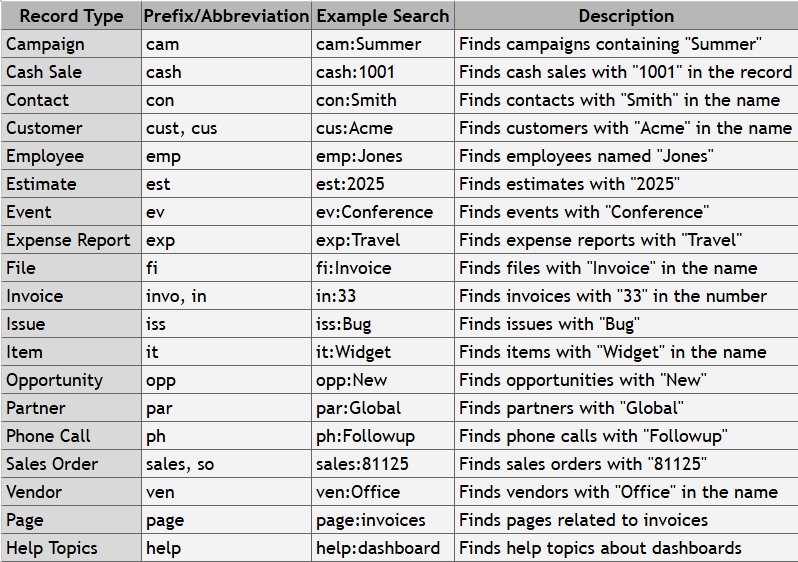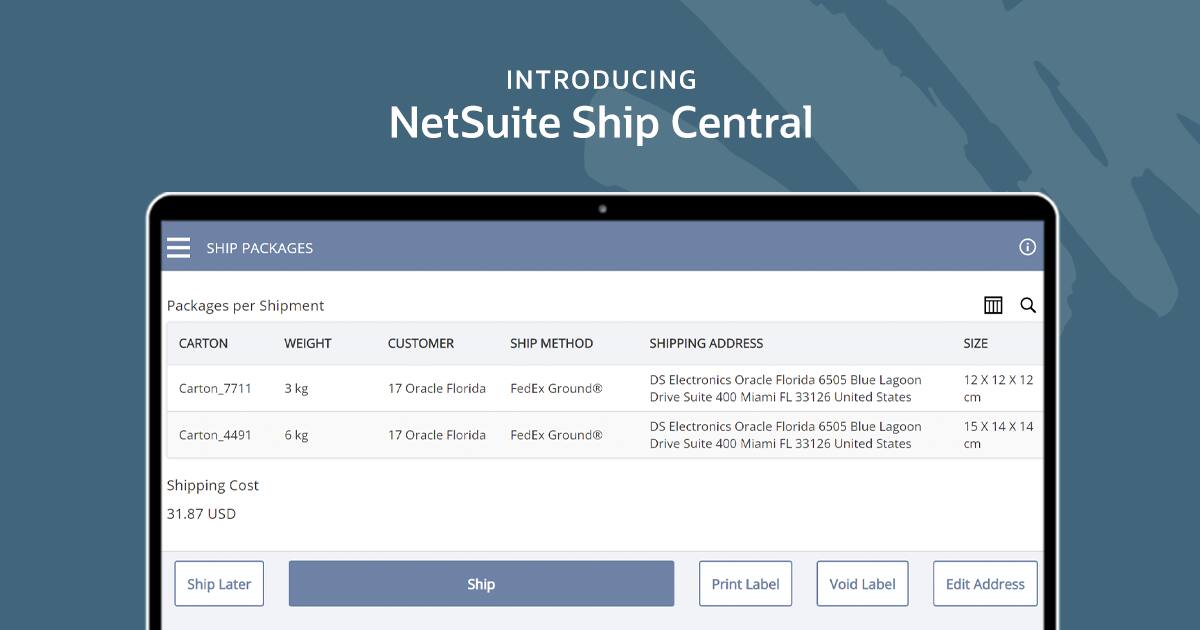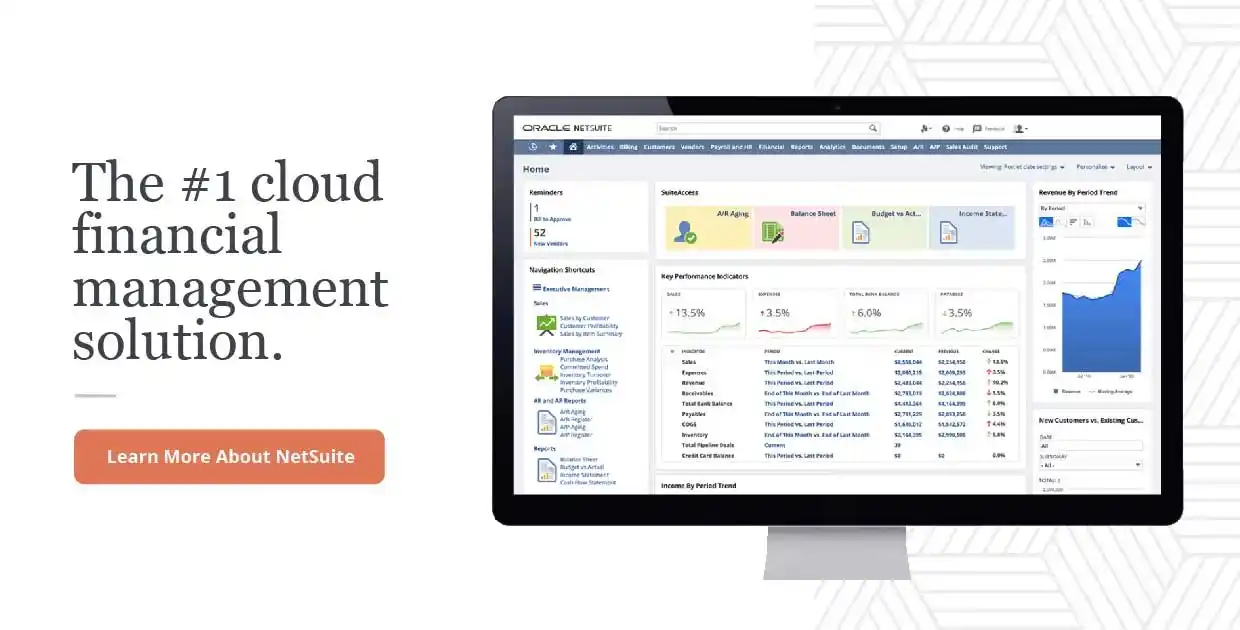
NetSuite Global Search
NetSuite’s Global Search is a powerful tool for quickly finding records, transactions, and pages across your entire account. But to truly unlock its potential, you need to master search prefixes—short codes that help you target specific record types and streamline your results.
What Are Global Search Prefixes?
A search prefix is a shorthand code made up of some or all letters of a record type name, followed by a colon (:) or caret (^). By using a prefix, you tell NetSuite to only search within that record type, making your searches faster and your results more relevant
Example:
- cust:Smith or cust^Smith – Finds customers with “Smith” in their record.
- inv:33 – Finds invoice number 33 (but could also return inventory items if the prefix isn’t unique enough

How to Use Prefixes Effectively
- Colon (:) or Caret (^): Both work as separators after the prefix (e.g., cust:, cust^).
- Upper vs. Lower Case: Capitalizing the first letter of the prefix (e.g., Cust:) opens the record in edit mode; lower case opens in view mode
- Wildcards (%): Use % to match any sequence of characters (e.g., cust:%Smith% finds any customer with “Smith” anywhere in their name)
- Inactive Records: Add a plus sign (+) to your search to include inactive records (e.g., emp:John+)
- Exact Matches: Use quotation marks for exact text (e.g., con:”Jane Smith”)
- Multiple Criteria: Use OR (uppercase) to search for multiple terms (e.g., cust:Acme OR Beta)
- Open in New Window: Use double colons (::) to open results in a new window (e.g., sales::81125)
- Customer Dashboard: Type dash CustomerName to go directly to a customer dashboard
Tips and Best Practices
Keep Keywords Between 3–32 Characters
Searches work best with keywords of this length; longer entries are truncated
Customize Prefixes
Prefixes may differ if your account uses custom record names or different languages
Auto Suggest
By default, NetSuite suggests matches as you type—click to open, or use the Tab key to navigate
Set Preferences
Adjust global search settings (like including inactive records or auto-suggest) under Set Preferences for a tailored experience
Troubleshooting & Notes
Ambiguous Prefixes:
Some prefixes (like inv:) may return more than one record type. Use more letters for specificity
(e.g., invo: for Invoice, invitem: for Inventory Item)
Language & Customization:
If your admin has renamed record types or you use a non-English language, prefixes may differ
Error with Colon/Caret
If you end your entry with only the prefix and a colon/caret (e.g., cust:), NetSuite will prompt for more input



